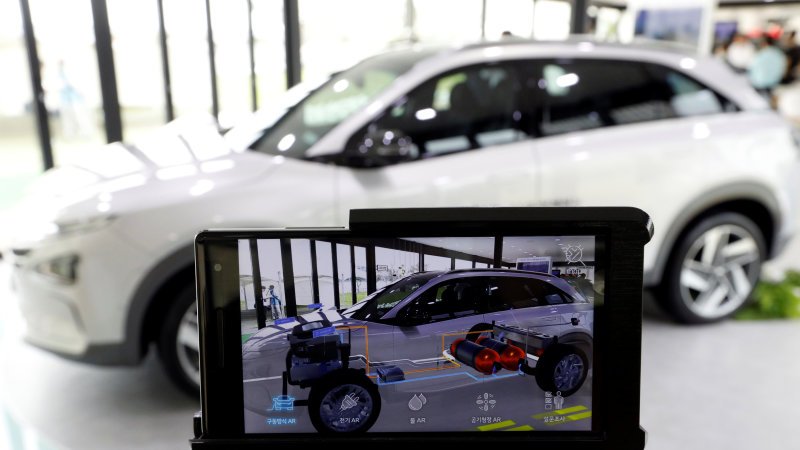Hyundai confirms a shift to EVs, unveils fuel cell SUV

Like Toyota, Hyundai had initially championed fuel cell technology as the future of eco-friendly vehicles but has found itself shifting to electric as Tesla shot to prominence and battery-powered cars have gained government backing in China. Hyundai's debut of its more modestly priced Ionic hybrid and electric has been well-received. But the pure electric's per-charge driving range is much shorter than the Tesla Model 3 or Chevrolet Bolt.
Toyota is now also working on longer-distance, fast-charging electric vehicles.
Hyundai first started signaling this strategic shift back in May when it first discussed plans to launch an electric sedan under its high-end Genesis brand in 2021 with a range of 500 km (310 miles) per charge. It will also introduce an electric version of its Kona small crossover with a range of 390 km in the first half of next year.
"We're strengthening our eco-friendly car strategy, centering on electric vehicles," Executive Vice President Lee Kwang-guk told a news conference, calling the technology mainstream and realistic.
The automaker and affiliate Kia, which together rank fifth in global vehicle sales, also said they were adding three plug-in vehicles to their plans for eco-friendly cars, bringing the total to 31 models by 2020.
Underscoring Hyundai's electric shift, those plans include eight battery-powered and two fuel-cell vehicles — a contrast to its 2014 announcement for 22 models, of which only two were slated to be battery-powered.
Hyundai also confirmed a Reuters report that it is developing its first scaleable, dedicated electric vehicle platform, which will allow the company to produce multiple models with longer driving ranges.
HYDROGEN SUV
Hyundai unveiled a near production version of its new fuel cell SUV with a driving range of more than 580 km per charge, compared with the 415 km for its current Tucson fuel cell SUV.
The mid-sized SUV will be launched in Korea early next year, followed by U.S. and European markets.
A fuel cell electric bus is slated to be unveiled late this year, while a sedan-type fuel cell car is also planned. Even so, analysts noted that gaining traction with fuel cells was going to be a long hard slog partly due to a lack of charging infrastructure.
"Hyundai will achieve economies of scale for fuel cell cars by 2035 at the earliest," said Lee Hang-koo, a senior research fellow at Korea Institute for Industrial Economics & Trade.
"Before that, Hyundai has no choice but to rely on battery cars," he said.
Hyundai launched the world's first mass-produced fuel cell vehicle in 2013, dubbed the Tucson Fuel Cell, but sales trailed Toyota's rival offering, Mirai.
Hyundai has sold about 862 of Tucson Fuel Cell vehicles since its 2013 launch, while Toyota sold some 3,700 Mirai Fuel Cell vehicles since its 2014 launch.
In Korea, there are 10 fuel cell charging stations, only one tenth of 100 in Japan, Hyundai said.
Reporting by Hyunjoo Jin; additional reporting by Maki Shiraki in Tokyo.
Related News


